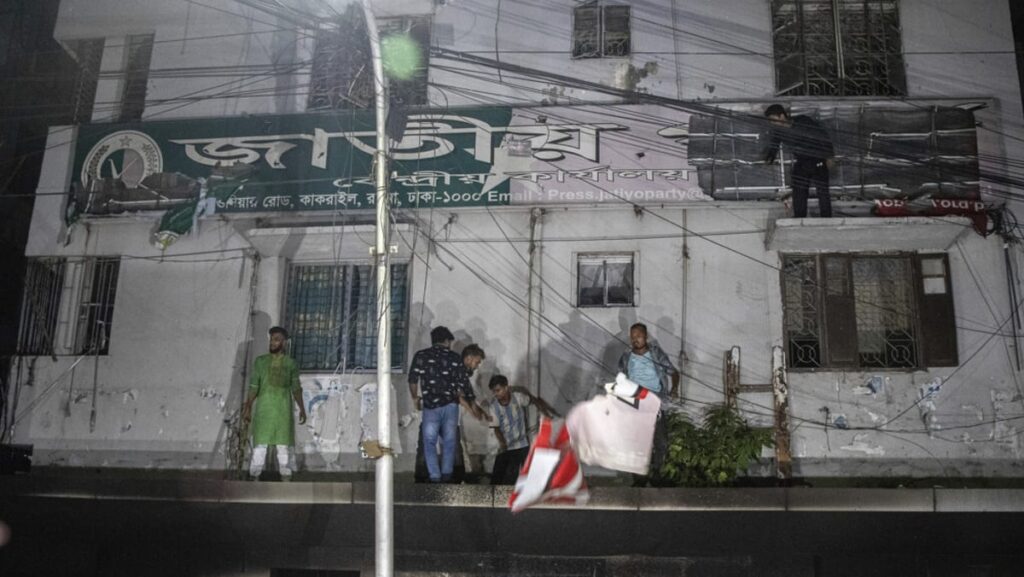Quader’s Jatiya Party was criticised for taking part in elections in January boycotted by the main opposition, and in which Hasina won a fourth consecutive term.
Hasina’s rule saw widespread human rights abuses, including the mass detention and extrajudicial killings of her political opponents.
She fled to India by helicopter on Aug 5 after months of protests against her 15-year autocratic rule.
Some of the top student protest leaders are now part of the cabinet of the interim government, which is led by Nobel Peace Prize winner Muhammad Yunus.
Dozens of Hasina’s loyalists have since been detained.
“They decide everything – they can vandalise, set fire to our offices, and remain above the law,” Quader said, without specifying names.
Hasnat Abdullah, convener of Students Against Discrimination, the protest group credited with sparking the uprising against Hasina, had on Thursday urged supporters to march on the Jatiya Party offices.
He called on students in a social media post to “annihilate the national traitor”.
But the group’s spokeswoman, Umama Fatema, said it did not condone the breaking of any law.
“The responsibility lies on individuals who joined the march,” she said on Friday.
Senior police officer Talebur Rahman said that no one had filed a case concerning the arson attack.
The incident came days after United Natins rights chief Volker Turk praised students in Dhaka for their “courage in standing up for justice”, while warning that they must also take care of the risks ahead.
“Beware of the idea that the ends justify the means,” Turk said in a speech at Dhaka University on Tuesday.
“The process through which you seek change is just as crucial as the outcome. Strengthening institutions can be more important in the long term than tearing them down.”
Read the full article here

